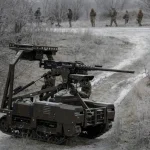ISLAMABAD: Defence Minister Khawaja Asif has said that a stable and peaceful Afghanistan is a guarantee to peace and stability in Pakistan and the region and has praised China for its efforts to find a peaceful solution to the Afghan problem.
The minister was addressing the plenary session of Xiangshan Forum on ‘Regional Terrorism: Roots and Solutions’ in Beijing.
According to a press release received here on Sunday, the minister said projects like the China-Pakistan Economic Corridor could be of benefit only when peace ushered in a new era of development and prosperity in the region. He called for addressing basic concerns of the people of the region and denying space to extremist elements who had taken advantage of the fault lines existing in societies.
For peace and stability, Khawaja Asif said, there was “a need to introduce a counter-narrative, along with a comprehensive social, economic and political reforms package in line with the culture, traditions and aspirations of the people”.
He condemned all acts of terrorism and called upon the international community to recognise the basic reasons for the fissures and fault lines existing in terrorism-hit regions. He mentioned the hitherto unresolved conflicts of Palestine and Kashmir and the unending events of gross human rights violations and said the world community had failed to address the root causes of these conflicts.
He said Pakistan had provided shelter to over three million Afghan refugees during the Afghan war, adding that continued instability in Afghanistan had severely affected Pakistan which sacrificed 60,000 lives and also suffered losses of billions of dollars.
Khawaja Asif said Pakistan’s armed forces had been carrying out various operations in tribal areas since 2003 and the current Zarb-i-Azb operation vastly outnumbered the achievements made by international forces in Afghanistan in 13 years. The world must recognise Pakistan’s sacrifices rendered over the past three decades.
Referring to security and stability in South Asia, the minister said all disputes needed to be resolved amicably.
While Pakistan has been forcefully advocating early resumption of the dialogue process with India, there is a need to reduce tension by avoiding escalation of hostilities along the Line of Control and the Working Boundary
Khawaja Asif said Pakistan had eliminated all members of the Uighur militant group — East Turkestan Islamic Movement (ETIM) — from its territory, but must remain vigilant to ensure that they didn’t return.
China blames the ETIM for carrying out attacks in its far western region of Xinjiang, home to the Muslim Uighur people, although many foreign experts doubt its existence in a cohesive group.
“We believe they’re all eliminated,” the defence minister told reporters on the sidelines of the security forum. “I think there (were) a small number in tribal areas, they’re all gone or eliminated. There are no more there.”
It was just as much in Pakistan’s interests as China’s to fight Uighur militants, he said. He denied there was any difference of opinion between Beijing and Islamabad on Pakistan’s efforts to tackle the problem.
Some Xinjiang government officials have said they believe Pakistan is not doing enough to prevent Uighurs from going there to become radicalised.
China and Pakistan were getting ready to finalise a deal under which the former would sell eight submarines to the latter, Khawaja Asif said, in what could be one of China’s largest overseas weapons sales once it is signed.





